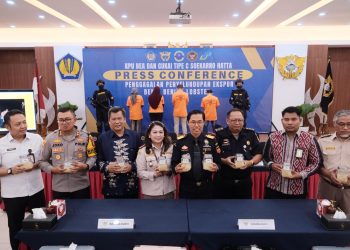Jakarta, Indonesia Sentinel — The National Nutrition Agency (BGN) provided clarification after news circulated online went viral, stating that parents of students were required to buy food containers for the Free Nutritious Meal (MBG) program. BGN has firmly denied allegations, emphasizing that the initiative is entirely free of charge.
According to CNN Indonesia, the controversy arose after a video went viral on social media TikTok, amassing over 3.2 million views. The footage shows parents attending a school meeting where they were reportedly asked to purchase two food containers per student, each priced at Rp30,000 (approximately $2). This equal to a total cost of Rp60,000 ($4) per student for a supposedly free meal program.
Lalu Muhammad Iwan Mahardan, Head of Legal and Public Relations at BGN, clarified that parents are not required to pay any additional costs for the program.
“The Free Nutritious Meal program, initiated by the government, aims to ensure every Indonesian child has access to nutrition essential for their growth and development. There are no fees involved, let alone any obligation to purchase food containers,” Iwan stated, as reported by Antara.
He emphasized that all necessary supplies, including eating utensils, are provided by program organizers to ensure the initiative runs smoothly and equitably for all students.
BGN Commitment in Free Meal Program
BGN has urged the public to report any irregularities or unauthorized fees imposed under the program. “We must collectively safeguard the integrity of this program for the sake of our children and a better Indonesia,” Lalu added.
President Prabowo Announce Reduced Budget for Free Meals Program, Rp10.000 per Portion
President Prabowo Subianto has prioritized the Free Nutritious Meal program as part of Indonesia’s strategic effort to enhance human capital development from an early age.
BGN reiterated its commitment to closely monitoring the program’s implementation nationwide, ensuring that its benefits are fully delivered to the intended recipients, including pregnant women, young children, and school-age students, as part of Indonesia’s broader initiative to reduce stunting rates.
(Raidi/Agung)


























